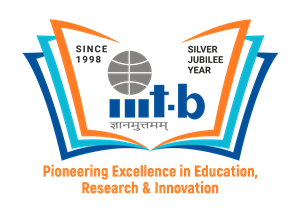–Toshiba Software (India) Private Limited collaborated with IIIT-B for their CSR based research Project which was implemented at the institute.
Imagine a large parking lot for a shopping mall that is open 24/7. The parking lot is not well lit, especially during nighttime and early morning hours. The mall management wants to ensure the safety of its customers and employees, and also wants to deter criminal activities such as theft, vandalism and car break-ins.
To address these concerns, what if the mall management installs smart cameras with low-light capabilities throughout the parking lot? And these cameras are equipped with advanced technology that enables them to capture clear images and video footage even in low-light conditions.
IIIT Bangalore and Toshiba Software (India) Private Limited has made a breakthrough in this.
Prof. G R Sinha, Principal Investigator (PI), says, “The proposed work aims to implement a smart city using smart cameras and image/video surveillance that can perform well even if the low-light condition prevails. The implementation and simulation cover entire IIITB campus and creating it as a smart campus. The coverage and scope of implementation of real-time surveillance in smart campus can be extended for any smart city project. Also, dynamic prioritization of multiple cameras is also addressed in the work.”

Major Objectives of the work are to detect intrusion, abnormal activities, vehicle tracking and classify various real time sensory data intelligently; to implement smart city surveillance and monitoring through real time sensor data analysis; and to dynamically prioritize the camera inputs from multiple cameras. The focus of this proposal is monitoring of persons, their identification, and activities; movement of vehicles, recognition of number plates and speed monitoring. IIITB campus is considered as experimental/test campus for creating it as smart campus through real-time sensory data analysis, monitoring and surveillance.

Toshiba collaborated with IIITB for CSR based research activities on “Smart City Surveillance through Intelligent Sensor Data Analysis and Monitoring under Low-light Condition”. Mr. Ravi Verma, Engineering Director, Toshiba Software (India) Private Limited, says, “The collaboration was initiated with the objective of implementation of smart city surveillance and monitoring system, and creating awareness among students of IIITB about smart city and its implementation in an Indian context.”
A machine learning model can be used to increase the effectiveness of dynamic prioritization in CCTV camera feeds. By analyzing the video feeds from multiple cameras in real-time, the model can detect and identify objects or individuals of interest. This information can then be used to prioritize the feeds from certain cameras, allowing security personnel to quickly and easily focus on the most important or critical areas. This can help to improve the overall effectiveness and efficiency of CCTV surveillance systems.
Smart Campus to Smart City
“The main benefits of the work, when deployed on a large scale in the city, would be providing safety, security, privacy and a holistic ambiance to common masses so that individuals can lead quality and healthy lives. The proposed work aimed to implement an automated smart city safety feature, using smart cameras and image/video surveillance that can perform well even if the low-light condition prevails. The implementation and simulation covered the entire campus of IIITB thereby creating a “SMART CAMPUS”. The coverage and scope of implementation of real-time surveillance in smart campus can be extended for any smart city project”, adds Mr. Ravi.
“To try increasing the intelligence in the previous method, we thought of creating a smart system to perform dynamic prioritization. The current implementation of the dynamic prioritization is with the usage of a machine learning model which, given a dataset with annotated frames, will be able to recognize which frame has more priority as opposed to the other frames,” adds Prof. Sinha.
Dynamic prioritization of multiple cameras helped to achieve major objectives like:
- Detection of intrusion, abnormal activities, vehicle tracking and classify various real time sensory data intelligently.
- Implementation of smart city surveillance and monitoring through real time sensor data analysis
- Dynamically prioritizing the camera inputs from multiple cameras.
These outcomes were achieved by the team at IIITB in a very short duration making the CSR collaboration very fruitful with scope for further research using the available infrastructure for analytics and surveillance purposes, adds Mr. Ravi.
Why choose IIITB for the CSR Research Project?
The International Institute of Information Technology Bangalore (IIITB) is well known for excellence in technical education, basic and applied research, innovation, and industrial consultancy. The institute is powered by a faculty of international repute, a motivated and brilliant student community, and excellent technical and supporting staff, who are well backed by effective administration. IIIT-B has emerged as a leader in the space of leveraging technology to drive social impact through its CSR collaborations. With several CSR partners, IIIT-B has been pioneering technology-driven social impact on a range of themes.
While thanking the team at IIITB, Mr. Ravi says, “The project was well executed with a focused group of students under the able guidance of seasoned professors in the field. We thank Director Professor Das, Professor Sinha and most importantly, all the students who took part in this initiative and wishing a brilliant career to these young entrepreneurs and researchers of future. We look forward to do more collaborations with IIITB in new fields and technology.”


